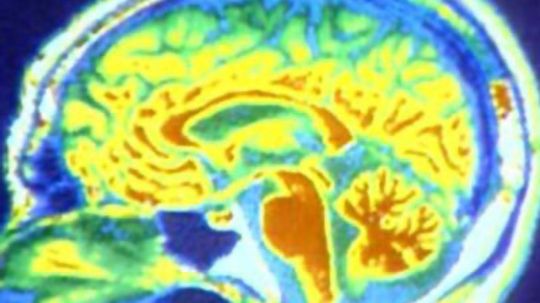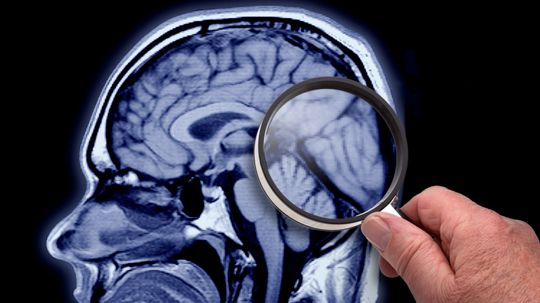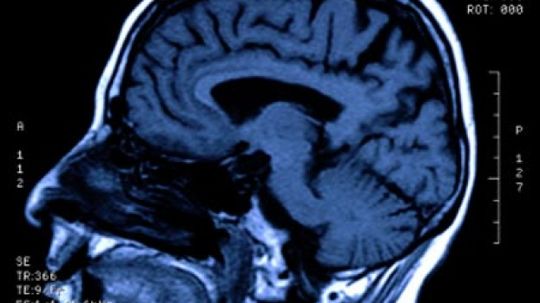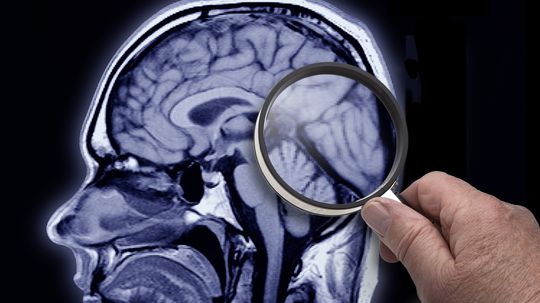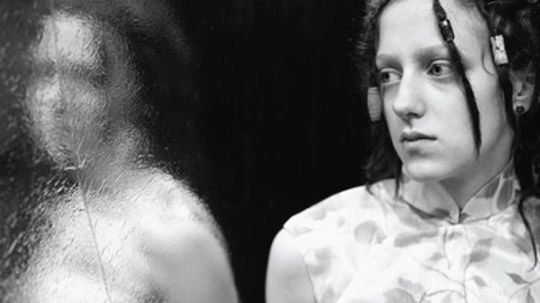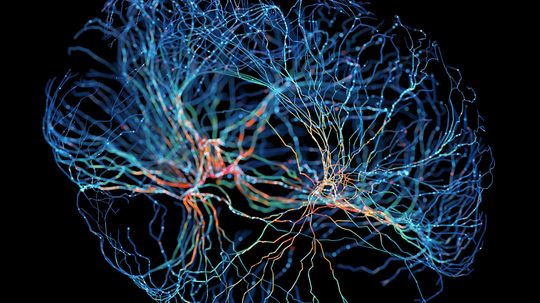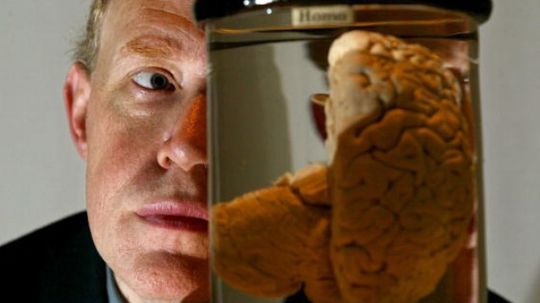The Human Brain
What are dreams really made of? Are humans the smartest animal? What causes schizophrenia? Travel inside the mind and find out how the human brain works.
Learn More / Page 2
Even if you're very ticklish, you probably are incapable of tickling yourself. Learn why.
One in three people consistently struggle through the autumn and winter months with a type of depression known as seasonal affective disorder (SAD). Here are some tips for dealing with it.
Whether brain death is a result of cardiac arrest and lack of oxygen to the brain, or of a gunshot wound to the head, the diagnosis is the same. Learn what the term "brain dead" actually means.
Advertisement
To achieve stability despite quick eye movements, the eyes take before and after shots of an image and compare them. Now, scientists may have finally discovered how.
By Julia Layton
Stress is just around every corner for most of us these days. Reducing it requires you to learn the various types of stress, their different causes and how to deal with them.
The more you know about your memory, the better you'll understand how you can improve it. Get details on how your memory works and how aging affects your ability to remember.
People with face blindness" can see facial features just fine; if they were looking at a face they could describe to you what it looks like. But they cannot retain a memory of it. In severe cases people don't even recognize their own face when they look in the mirror. Learn what face blindness is all about.
By Julia Layton
Advertisement
Medical examiners are attributing an increasing number of deaths while in police custody to a syndrome called excited delirium. The problem is, there's no proof this syndrome exists.
By Julia Layton
Human beings have always found ways to ward off the effects of sleep deprivation. The newest wake-up pill has all of the benefits of caffeine and amphetamines with none of the down sides.
By Julia Layton
In the past, applying electricity to the brain was a painful measure of last resort. Now with lower power and electrodes surgically planted deep within the brain, it could be the answer to many debilitating diseases.
If you could control your dreams, what would you do? Grow wings and fly, travel to ancient Rome, dine with Marilyn Monroe, open opera season at the Met? It could be possible.
By Katie Lambert & Sascha Bos
Advertisement
One of the top-prescribed sleeping pills may cause you to shuffle out of bed and sleepwalk to the fridge. Could Ambien be making you sleepy and hungry?
Memory is your only personal record of the past and of who you are as an individual. What if you woke up one morning and your memory was gone?
You might think that not being able to feel pain would be a blessing. No tears, no painkillers, no lingering aches. But really, not being able to feel pain is dangerous.
Can your mirror lie? Though loved ones reassure you that your appearance is normal, all you see is your flawed, monstrous reflection. This is life with body dysmorphic disorder.
Advertisement
You may vaguely remember hurting your knee at the age of 3, but do you recall the moment your body burst into the world? Most likely not. Why are our first years devoid of memories?
People with schizophrenia can experience delusions, hallucinations and paranoia. But they don't have to suffer social isolation. Find out what successful treatments can help people with the disorder.
By Jane McGrath
In the wild, are brains better than brawn? Find out when your fight-or-flight response is your friend and when it's your enemy.
Imagine feeling like you were born into the wrong body. People with gender identity disorder (GID) suffer persistent dissatisfaction with their gender identity. But is it fair to call GID a psychological disorder?
Advertisement
Brain mapping attempts to provide a complete picture of the brain's structure, but few know how brain mapping works. Learn how brain mapping works.
By Susan L. Nasr & Sascha Bos
If bigger is better, then some of us have the advantage when it comes to brainpower. Human brains (and noggins) don't all look the same. Does size really matter? And if it does, who comes out on top?
TV shows, movies and books depict characters that have suffered a bad injury to the head and have lost their memory. But could it really happen that fast? And will their memory ever return?
It's commonly believed that that grandpa has more knowledge than his young whippersnapper of a grandkid. But do wrinkles on the face really relate to wrinkles on the brain?
Advertisement
Think about how you would describe yourself to a stranger. Would you emphasize your keen sense of humor or physical features you're fond of? Or would you spend more time on supposed "trouble spots"? Your answer largely depends on your mental picture.
So you're at a family dinner, and your uncle stands up and dramatically announces that he has a brain tumor. How does he know? Because he researched his frequent headaches on the Internet.


